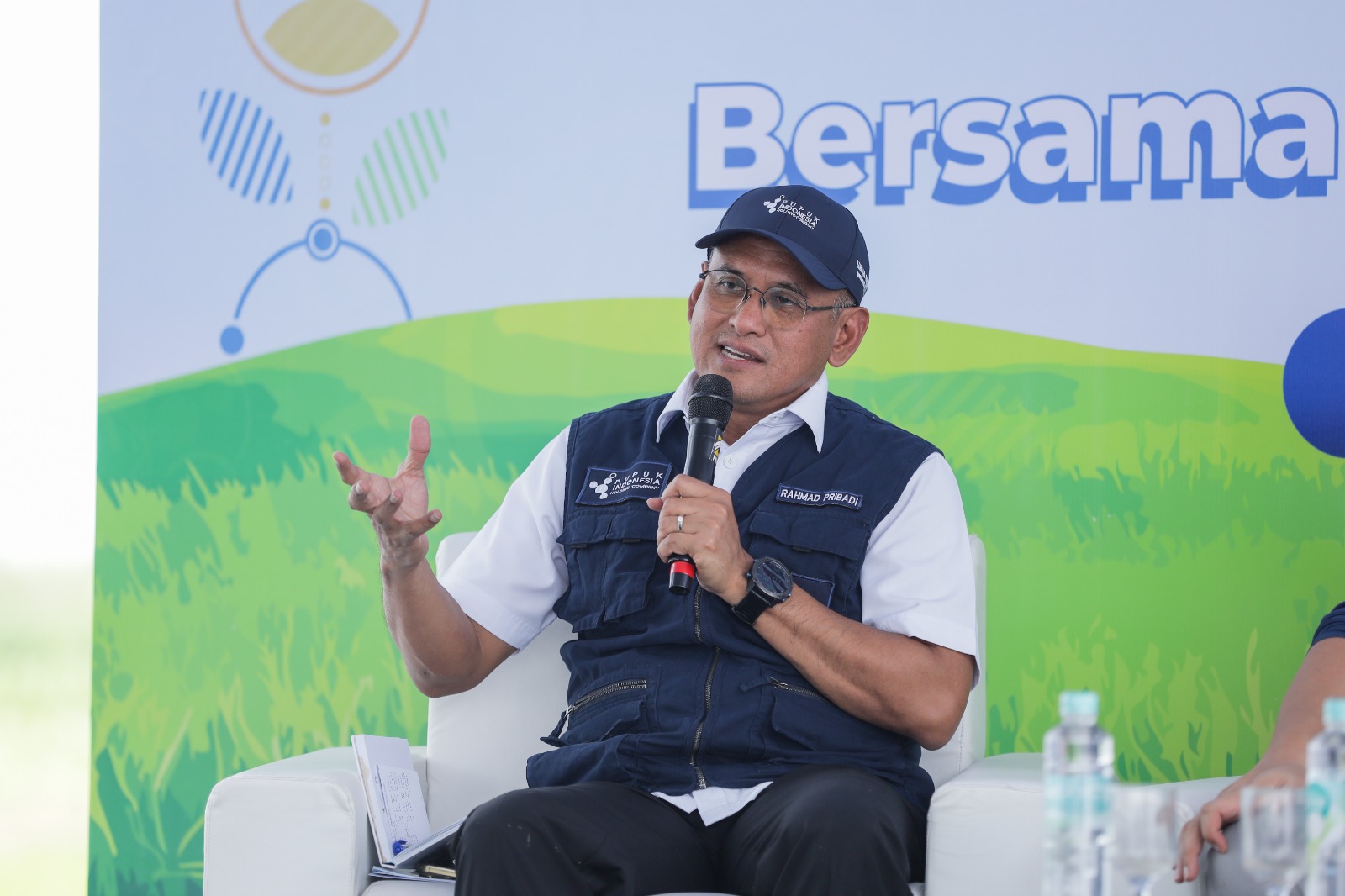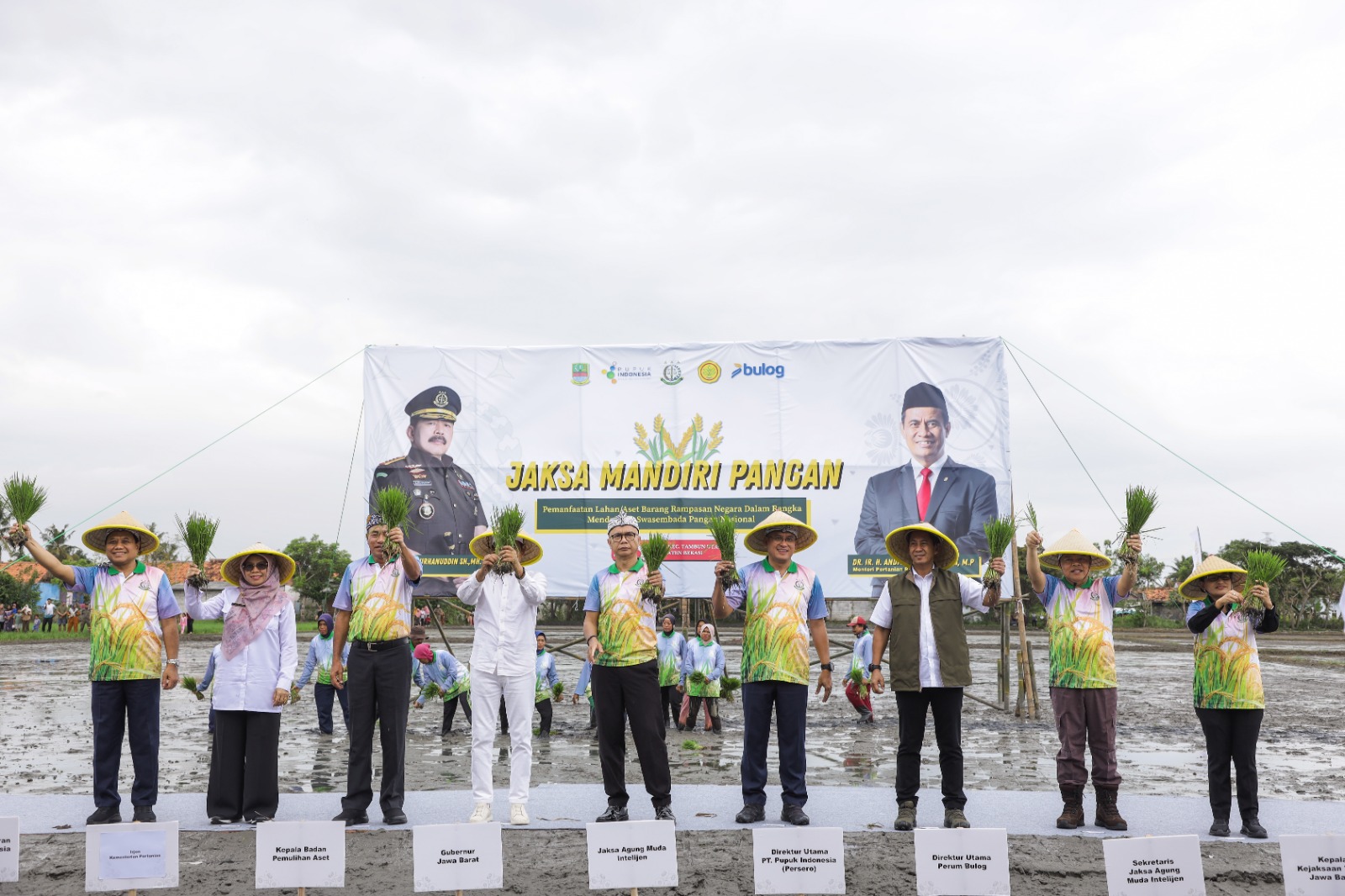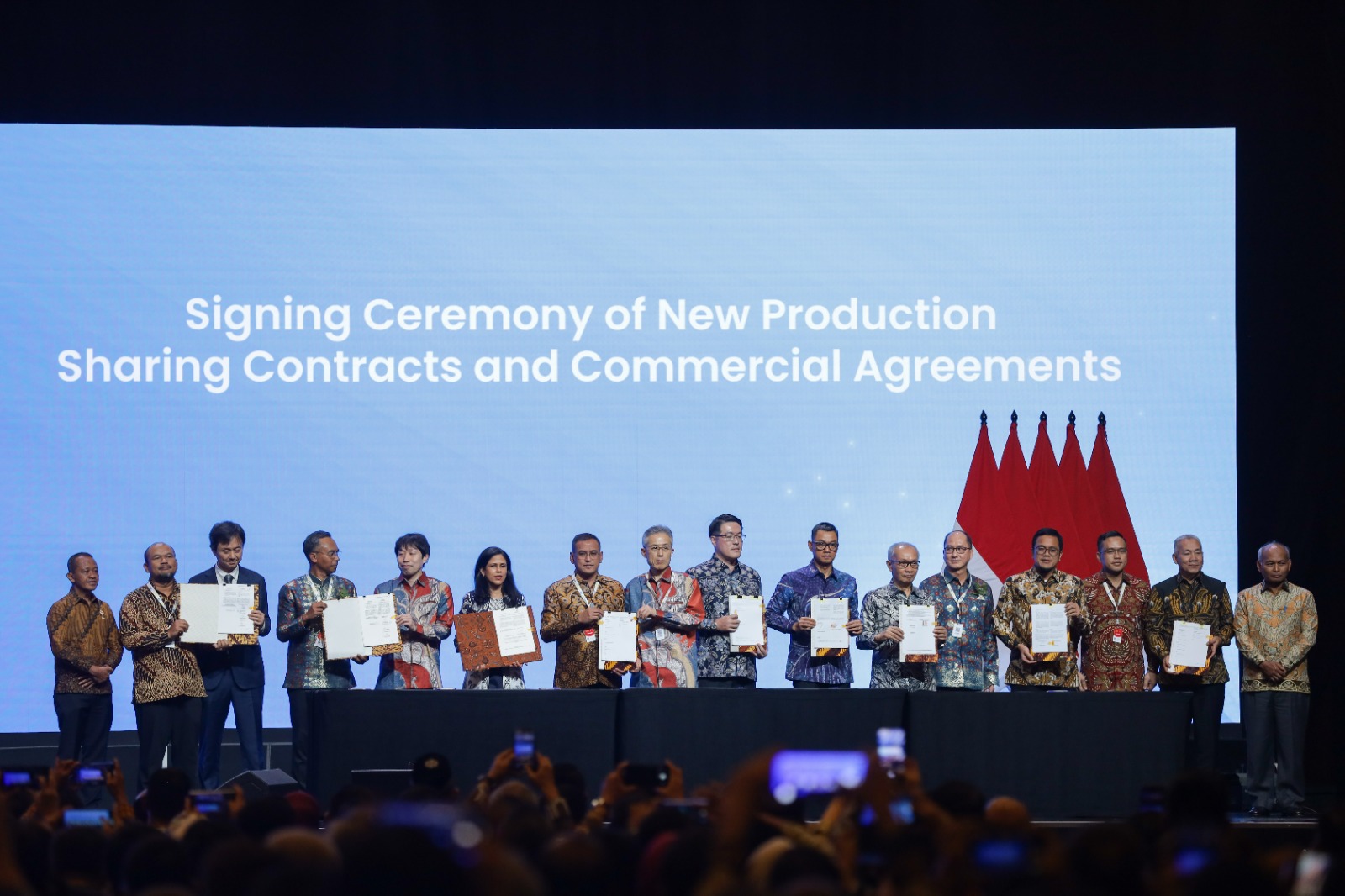Selenggarakan "PI Menyapa", Pupuk Indonesia Dukung Merauke Menjadi Lumbung Pangan Nasional
-thumb.jpg)
Merauke, 26 Juli 2014 - PT Pupuk Indonesia (Persero) menyelenggarakan program "Pupuk Indonesia (PI) Menyapa" di Balai Desa Kampung Telaga, Distrik Kurik, Kabupaten Merauke, Provinsi Papua Selatan, Kamis (25/7/2024). Program ini sekaligus menjadi dukungan perusahaan terhadap pertanian di Merauke sebagai lumbung pangan nasional.
Direktur Utama Pupuk Indonesia, Rahmad Pribadi menyampaikan bahwa, PI Menyapa di Merauke ini merupakan forum komunikasi dan koordinasi dengan pemangku kepentingan di lapangan. Acara ini bertujuan untuk mendorong percepatan penebusan pupuk bersubsidi di wilayah ujung Timur Indonesia. Selain itu juga menjadi upaya Pupuk Indonesia untuk meningkatkan produktivitas pertanian dan menjaga ketahanan pangan nasional maupun regional.
“Pupuk Indonesia menyapa semua orang yang sudah bekerja keras untuk memajukan pertanian Indonesia, para PPL (Penyuluh Pertanian Lapangan), tim verval (verifikasi dan validasi), kios resmi, distributor, pemerintah, kelompok tani, KTNA (Kontak Tani Nelayan Andalan), dan stakeholder pertanian lainnya. Kita menyapa mereka, mengapresiasi mereka sekaligus melakukan kegiatan tebus bersama,” ujar Rahmad Pribadi.
Adapun upaya Pupuk Indonesia untuk mendorong percepatan penebusan pupuk bersubsidi dilakukan melalui program tebus bersama. Fasilitas ini mempermudah petani dalam penebusan pupuk bersubsidi, karena tidak perlu lagi datang ke kios. Cukup datang di satu tempat, contohnya di Balai Desa Kampung Telaga Sari, petani sudah bisa menebus pupuk bersubsidi menggunakan kartu tani atau Kartu Tanda Penduduk (KTP).
Sementara itu dalam kunjungannya di Merauke, Rahmad Pribadi juga memastikan kesiapan pupuk bersubsidi dengan mengunjungi sejumlah kios, gudang dan petani. Mengingat wilayah ini merupakan wilayah penting untuk ketahanan pangan nasional.
Adapun per tanggal 20 Juli 2024, Pupuk Indonesia telah menyiapkan stok pupuk bersubsidi sebanyak 5.890 ton untuk seluruh Papua, dan sebanyak 3.530 ton stok diantaranya berada di Gudang Lini III Merauke. Rinciannya, 1.955 ton pupuk Urea dan 1.575 ton pupuk NPK Phonska untuk petani Merauke. Semua stok tersebut melebihi ketentuan minimum yang diatur oleh Pemerintah.
“Saya telah mengunjungi gudang di Tanah Miring. Gudang ini merupakan gudang paling Timur yang dimiliki Pupuk Indonesia. Saya tidak ada kekhawatiran di Merauke, saya kira Bu Kepala Dinas Tanaman Pangan, Hortikultura dan Perkebunan Kabupaten Merauke (Yosefa Loise Rumaseu, Red) sepakat Merauke bisa menjadi lumbung pangan baik regional maupun nasional,” tandas Rahmad.
Lebih lanjut ia menambahkan, untuk meningkatkan produktivitas pertanian dan menjaga ketahanan pangan nasional, Pemerintah pada tahun 2024 ini menambah alokasi pupuk bersubsidi dari 4,7 juta ton menjadi 9,55 juta ton secara nasional. Penambahan tersebut juga diberikan untuk petani di Merauke.
Alokasi pupuk bersubsidi Urea di Merauke saat ini mencapai 8.730 ton, atau 72,4 persen lebih banyak dibandingkan alokasi di awal 2024, yaitu 5.065 ton. Kemudian alokasi NPK terbaru sebanyak 14.322 ton atau ditambah 125,3 persen dari alokasi semua sebesar 6.360 ton.
Untuk menjamin kelancaran penyaluran pupuk bersubsidi di Merauke, Pupuk Indonesia juga menyiapkan fasilitas penunjang. Antara lain tiga unit gudang Lini III dengan kapasitas total 6.000 ton. Kemudian dua Distributor, 55 Kios serta sebanyak tiga Petugas Lapang yang akan memastikan penyaluran pupuk bersubsidi di tingkat distributor dan kios dapat berjalan dengan baik.
Lebih lanjut Rahmad Pribadi menambahkan, dari hasil tinjau lapangan, wilayah Merauke memiliki tanah pertanian cukup baik, subur dan memiliki potensi besar untuk dikembangkan. Mengingat saat ini rata-rata produktivitas padi di Merauke masih di angka 3 hingga 4 ton per Hektare.
Sementara lahan pertanian di Merauke terbilang luas. Contohnya Kampung Telaga Sari memiliki lahan pertanian sekitar 1.058 Hektare untuk tanaman padi. Untuk itu Pupuk Indonesia mendorong percepatan penebusan pupuk bersubsidi agar produktivitas di Merauke dapat ditingkatkan.
“Pertanian di sini juga telah dikunjungi Presiden Republik Indonesia, Bapak Joko Widodo beberapa waktu lalu. Merauke ini unik, saat harga beras dimana-mana naik, disini selalu lebih murah. Nah ini penting untuk ketahanan pangan nasional,” pungkasnya.







